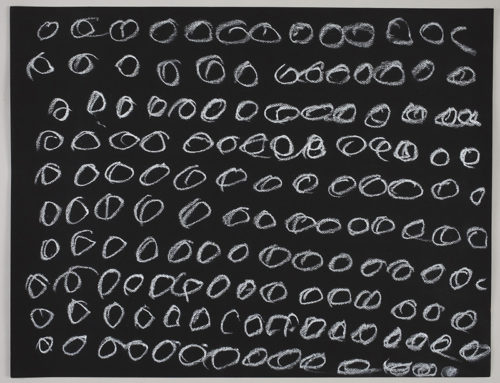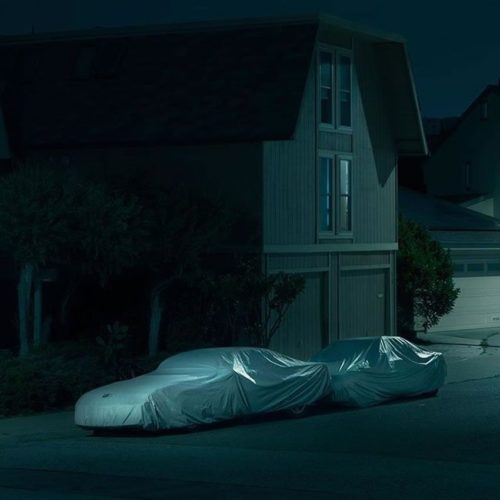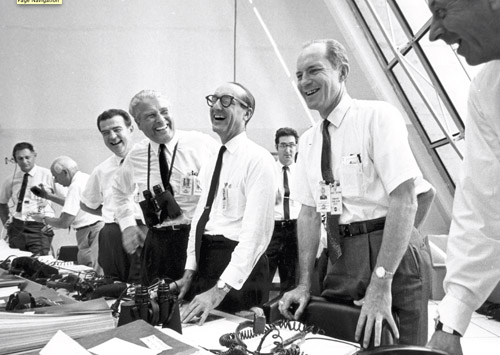
Bonneville Crater, Mars.
“Something happens to you out there…”
Edgar Mitchell. Apollo 14 astronaut
“Therefore the demiurge made the world in the shape of a sphere, giving it that figure which of all is the most perfect and the most equal to itself.”
Plato (Timaeus, Cornford tr.)
“But if you have ever cut behind any American event or any presentation of them, to the primary documents, you will know the diminishment I am here asserting: that only Melville escapes…{ } So you better figure on man’s interiors. If its images are called for, they come from there. And he’s got em. The Americans have. No need to worry. Or look for heroes. The point missed is, that when men aren’t sure just what insides are, or just where they are, such men are not easily read. Or are misread. And you get the false impressions that have mostly, up to now, governed all conversions. To false forms you have to add these false premises: either that sd Americans are more than they are (still waters, like the Indians or Wyatt Earp, who was also, besides what he was, nothing but a company cop); or less (mere killers, like we are taken, as Billy has been taken by those who do not hear, as one can say for Walter Noble Burns that he does hear even if he overhears, the Kid’s question “Quién es?” (with Pat Garrett sitting at the foot of the bed, in the blackness)…”
Charles Olson (Billy the Kid, Collected Prose)
“Though in many of its aspects the visible world seems formed in love, the invisible spheres were formed in fright.”
Herman Melville (Moby Dick)
I watched Damian Chazelle’s latest film, First Man, about Neil Armstrong and the moon landing. Two things struck me about the film. Well, three things, really. But the two first qualities have to do with Chazelle’s inability to actually tell a story. The narrative is exceedingly elliptical. One suspects unintentionally. And the second thing was Ryan Gosling’s performance, which mirrored the holes and loss of affect of the direction and screenplay. Now Gosling’s sullen and affectless portrayal of Armstrong was in keeping with a trend in leading men these days. Find me a Hollywood film in which the young protagonist/love interest is NOT sullen and affectless. I bet you cant find many. But its also possible this was exactly Neil Armstrong.
And this leads to the third thing about the film: the brilliance of the production design (which used to be called art direction, but never mind). There was one shot, in an early launch of the Apollo program, where the camera peers down into the capsule that the astronauts are about to crawl into. And one has the sudden sense of the madness of this fucking tin can being hurled very far into space. The spare claustrophobic metal can, with very simple dials — much like formula one cockpits. There was also the unsettling echo of militarism about the venture. These were military guys, they didn’t pick scientists or artists. They made jar heads into pseudo scientists and used them. And the very inflexible blankness, emotionally, of the military sensibility and character armoring was perfect for NASA. These were, finally, military programs.
Chazelle has made, perhaps through accident, a disturbing auteur film. Space program as autism. Except its not autism, in which human beings actually struggle and work, often, to overcome the condition. This is something like that only terminal and linked to other calcified personality traits. By the end of the moon landings astronauts were playing golf. NASA had run out of things to do on and with the moon.

Xavier Veilhan
They could have just sent blind astronauts and cut to the chase. Some, if not most, came back a bit weird anyway.
https://theweek.com/articles/619451/transcendental-revelations-astronauts
“To address the question of whether this was a political statement, the answer is no. My goal with this movie was to share with audiences the unseen, unknown aspects of America’s mission to the moon — particularly Neil Armstrong’s personal saga and what he may have been thinking and feeling during those famous few hours.”
Damien Chazelle
Uh, well, watching the film one of the clearest things to take away was that nobody was thinking much of anything.
David Morris, lecturer at University of Illinois said, in an interview about the Apollo missions…“So for Herman Melville, Moby Dick, there’s this experience of, you know, this whale kind of represents not understanding what the heck’s going on…This is this huge sort of nature. Nature can’t quite be understood or confronted but one looks at it with awe.”

Pierette Bloch
Awe usually associated with a conceptual or perceptual vastness. And this is clearly a significant aspect of art. For the astronauts, guys who all were born in the 1930s, and were the crew cut hard math cowboys who became fighter pilots or test pilots for the military. The mortality rates for test pilots were ridiculous. So there is vastness, and awe and there is an attraction to death.
The film Chazalle made is an exercise in anti drama. Or anti cinema, better. It feels exactly reflective of the zones of emptiness in contemporary consciousness. In a period piece, even the near past, the result is a sort of new kind of uncanny. The production design captured something in a way that far exceeded the grasp of the filmmaker, and no doubt everyone else involved. But in all of the astronaut films there is clearly something difficult in playing the part of one of these men. For they are by design ciphers. Actually they are not even that. They are walking prospectuses for something approaching a cipher. That was the drill, button it down and shut off the vastness. And all of the films dealing with the space program, (though perhaps oddly Chazelle’s is the least guilty of this) there is a denial of the depression that hovers around all military bases. Nothing in the universe is as depressing as large military bases.
I think what I am trying to get at here is that there is something in the NASA venture that reflects in a particularly sharp way, an acute way, the contours, or front edges of the contours that were to become the contemporary blank neo autistic affectless culture of screens and repetitions.

Buzz Aldrin, Michael Collins, and Neil Armstrong. Crew Reception Area of the Lunar Receiving Laboratory. Apollo 11.
At the time of the final Apollo mission, #17, the cost was already winding down from the 4.5% of the Federal Budget that was the peak year 1966. Whenever one hears complaints about the cost of the Apollo missions its fun to remember the war on terror has cost well over 5 TRILLION dollars. Defense spending is, however you count it, at least 30 some per cent of that same Federal Budget. In other words war is a lot more profitable. Much as I find disturbing the quality of pathology I sense lurking in all NASA ventures, Id be more than happy to vote for another 5% to keep exploring space. But that is not where things went. Its been over 40 years since the last moon landing. Today privatized sub orbital space travel is a booming emergent business field. Elon Musk, of course, at the forefront. This is only the latest version of shutting down the vastness.

Vija Celmins
I am, no doubt, being unfair to some degree regards Chazelle. The film is, in fact, regardless of the gloss I’m giving it, heads and shoulders better than 99% of what comes out of Hollywood. Though that begs the question of what one means by “better”. But the real question raised by this new nostalgia for NASA is how it happened that the project of sending man to the moon so quickly became just another small corner of pop culture. If there were any profound scientific discoveries linked to the moon exploration I’ve not heard of them. In a sense, the photographs from Mars provided a far deeper poetry. As a sidebar, when I directed my play Dogmouth in LA, we had a friend at Cal Tech who sort of smuggled out large format color photographs from the Viking 2 lander (as I recall anyway). We had them blown up and used as a kind of cyclorama for the set, which was meant to be the Mojave desert in California. Nobody ever spotted that the photos were of Mars (we did tweek the horizon a bit). But the effect was pronounced. There was a quality of deadness, a kind of deadness that nothing on earth can achieve.

Donatello (Bust of Niccolò da Uzzano, 1430. Polychromed terracotta).
What was the *New World* (sic) to Shakespeare’s audience? In what way was The Tempest a kind of contemplation of the unknown world beyond the seas? Charles Olson wrote much about this when in his book on Moby Dick (Call Me Ishmael). He also wrote of space. Of the American foundational relation to space. Yet we have no Tempest for Apollo, no Melville for NASA. So far there is only Tom Wolfe.
“The Pacific is, for an American, the Plains repeated, a 20th century Great West. Melville understood the relation of the two geographies. A Texas painter settled in
Brittany and spent his life on canvases of French fishermen and the Atlantic Ocean. But the paint, the motion, the reality turned out to be the Plains. Each canvas was
the Panhandle seen through a screen of sea. Space has a stubborn way of sticking to Americans, penetrating all the way in, accompanying them. It is the exterior fact. The basic exterior act is a BRIDGE. Take them in order as they came: caravel, prairie schooner, national road, railway, plane. Now in the Pacific THE CARRIER. Trajectory. We must go over space, or we wither.”
Charles Olson (Call Me Ishmael)
“In Shakespeare’s tomb lies infinitely more than Shakespeare ever wrote. And if I magnify Shakespeare, it is not so much for what he did do as for what he did not do, or refrained
from doing. For in this world of lies, Truth is forced to fly like a scared white doe in the woodlands…”
Herman Melville (Mosses, 1850)

Amadeo Luciano Lorenzato
The foreclosure of imagination seems a key element of contemporary society. And perhaps it is the Apollo program that best epitomizes the extreme shut down capacity of today’s culture. That the original NASA agenda would devolve (from what was already a shut down mechanism) to Elon Musk and orbiting cruise ships in space speaks to the staggering energy at work in killing awe and wonder.
But no matter the forces of cultural repression, and the neutralizing of imagination, there seems a process of leakage that mirrors Freudian notions of dreamwork. Hence, the autistic holes in the Chazalle film, and the rise of uncanny effects in the everyday presentation of life. As society becomes more administered, it also becomes more uncanny. I think this is something Adorno, sensed, but never quite articulated. But when he wrote of the fascist leader he implied the unremitting strangeness of fascist representation. The shut down effects of digital technology are also, clearly, drastic and grave. That, increasingly, Silicon Valley elites are preventing their children (or limiting) from screen time.

Devan Shimoyama
Now, regards the Apollo missions; it should be said that there were large numbers of people who took part and contributed to the moon landings who worked in the exact opposite direction from the forces of repression. For there is a noble ideal of science buried in all this, somewhere. But I continue to wonder at the inevitability of this psychic crises. If that is what it is, and I can’t think it’s not that. American culture can be explicated by historical tracings. Melville is certainly one marker. It is perhaps both too easy and also too reductive to think in epochs. Still, there are watersheds and the role of industrialization and technology is undeniable. Spiritually, the state of contemporary life is almost at total stagnation.
The moon landings, then, feel like a marker of another sort. That the U.S. spent the bulk of its material and psychic energy fighting communism was, obviously, a crucial aspect of getting to the moon. One wonders, if there had been no cold war what NASA would have done? Would there have been a NASA. Was the idea of space travel, of getting to the moon, some deep primal drive? Unlikely, at least as it was manifested in Gemini and Apollo. But then, the entire construction of American consciousness was wed to the ruling Capitalist class and its projection of terror onto communism. The construction of the American ruling class was Puritan, Christian, but northern European Christian, and warlike. Spiteful, selfish, and stoic. D.H Lawrence wrote of that after visiting, and Melville saw it and felt its oppressive qualities.
“This august dignity I treat of, is not the dignity of kings and robes, but that abounding dignity which has no robed investiture.Thou shalt see it shining in the arm that wields a pick and drives a spike; that democratic dignity which, on all hands, radiates without end from God; Himself! The great God absolute! The center and circumference of all democracy! His omnipresence, our divine equality!”
Herman Melville

Christopher Soupkup, photography.
“…in early 2014 Begley went back to the drawing board—this time with a new idea. What he did was to create an application that had no content at all, in order to test whether it would get approved. He called it Ephemeral and submitted it to Apple on January 17, 2014, to see what would happen. As he explained, “ The point of it was to have no content at all.” The application, surprisingly, was accepted without any fuss a few days later.”
Bernard Harcourt (Exposed)
“The correlation of consciousness with masculinity culminates in the development of science, as an attempt by the masculine spirit to emancipate itself from the power of the unconscious. Wherever science appears it breaks up the original character of the world, which was filled with unconscious projections. Thus, stripped of projection, the world becomes objective, a scientific construction of the mind.”
Erich Neumann (Origins and History of Consciousness)
Neumann saw science as the manufacture of a specific reality, a masculine reality. The first *man* on the moon. But the extent of the shut down of imagination, both personal and collective, is given evidence by the loss of interest in moon landings. One might have expected almost impossible awe and wonder to cut across classes and cultures. But it did not. From this viewpoint the Apollo program was the ultimate scientific conquest of imagination.

Farnase de Andrade
“As infants, closer to nature than to society, we began life with eyes opened by enchantment. As adults, we tend to conform to the crowd, seeing only its reality. This has always been true; not only nowadays, but also in earlier epochs – in the time of Herakleitos. Even then. But there is, nevertheless, a difference between the past and the present. For, the culture of blindness has reproduced and multiplied its blindness. In the present epoch, the blindness of the crowd, a perfectly normal blindness in which we all participate, is steering the machines of our technological rationality and poses an especially perilous and fateful danger to our visionary being.”
David Michael Levin (The Opening of Vision – Nihilism and the Postmodern Situation)
Scientific perfection is always authoritarian. Which is not always bad, mind you. But the demand for a certain adherence to the form of reasoning associated with science does feel masculine. Science is, also of course, that which lifts people out of poverty and hunger. That Cuba, for example, now produces more doctors per capita than any other country speaks to the humanizing qualities of science, when in the service of equality and compassion. So its important to be exact (scientific?) when speaking of “science”. Also, as is now known, key scientists and mathematicians involved in Apollo program were women. And perhaps that accounts for the ambivalence of the experience when looked at in hindsight. As I say, there was also a nobility sedimented into this project that created even another register of the uncanny.

Launch headquarters, an Apollo mission.
I think that the space program did little to inspire revolutionary sentiments or feeling, and equally did little to spur that narrative necessity in humankind. A semi side bar note here on Science Fiction as a genre. It is interesting that, save Tarkovsky and Kubrick, little in the way of serious film art was produced against the backdrop of space. The Sci Fi junkies will say I am just obtuse, but while much of Sci Fi is quite entertaining, only those filmmakers mentioned and maybe Phillip K. Dick can be taken seriously. Why is that? I think because Sci Fi as a genre is predicated on an almost childish model of reality. (and yes I know Ursula le Guin is great and all that…except I don’t really think that, and anyway Im not sure thats Sci Fi).
There are however outliers. Trevor Paglan is one.
https://sites.artsblock.ucr.edu/free-enterprise/travor-paglen/
And at what point does our paranoia turn? Paglan has access to much I do not. Why? See, how does that work? Tear away the mask and find another mask. The core of paranoia but also of covert ops and counter intelligence operations.
“The voice of reason, Kant says, . . . speaks to each without equivocation, and it gives access to scientific cognition. But it is essentially for giving orders and prescribing.”
—Jacques Derrida, (Of an Apocalyptic Tone Recently Adopted in Philosophy)
Levinas said something significant in relation to this scientific authoritarianism.
“All speaking is an enigma…”
(Basic Philosophical Writings)
“…an enigma is not a simple ambiguity [équivoque] in which two significations have equal chances and the same light. In an enigma, the exorbitant meaning is already effaced in its apparition. [Thus,] the God who spoke said nothing, passed incognito; [whereas] everything in the light of phenomena gives lie to him, refutes, represses, persecutes him.”
Levinas (Otherwise than Being)
David Michael Levin adds…quoting Levinas…(Before the Voice of Reason: Echoes of Responsibility in Merleau-Ponty’s Ecology and Levinas’s Ethics)
“What is essential here,” he notes, “is the way a meaning that is beyond meaning is inserted in the meaning that remains in an order, the way it advances while retreating.”

Frank Laws
Now, all these remarks are about the uncanny and enigmatic quality of speech. In fact Levin’s book would be a great text for a theatre writing class. Adorno (who Levin writes about in another chapter) thought that one must learn to listen better (to put it reductively). To listen for what Merleau-Ponty would call echoes. For Adorno, the task of thought was ..
“Knowledge has no light but that shed on the world by redemption: all else is reconstruction, mere technique. Perspectives must be fashioned that displace and estrange the world, revealing it to be [. . .] as indigent and distorted as it will appear one day in the messianic light.”
(Minima Moralia)
Before language there is the sound of our body. The infant recognizes the sound of his or her parent’s voice. This is how theatre begins. And from theatre there comes religion, if the task of thought is too great. But the point here is that speaking is being reduced. Computer generated voices must be negotiated daily. People have begun to talk like computers.

Michal Rovner, photography.
And I think in general, at least in the U.S., people no longer want to hear. Perhaps even more than their not wanting to see. The trauma of childhood is so grave that the voice must be pre-recorded. One’s own voice especially. Horkheimer wrote that “Language reflects the longings of the oppressed and the plight of nature.” Only now the concept of Nature is occluded. We have no clear idea what Nature means. Mostly it means what you see in Sierra Club magazines I guess. Or it is the criminalized nature of *killer storms* etc. The moon landings launched its own kind of kitsch version of eco-sensitivity. The blue marble, earthrise, and all the rest. But mostly it was incomprehensible.
“Misidentification is reinforced in contemporary consumer culture, which socializes consumers to believe that their desires are their own. Consequently, both subject and model each believe that their actions are justified because of their mutual misrecognition of desire.”
John Desmond (Psychoanalytic Accounts of Consuming Desire)
When Nature stops expressing anything beyond a generalized consumer desire or vague sentimental trope language is further eroded. There was no real language to attach to the Apollo program. the countless toy like models that showed trajectory and the like served to further infantilize the idea of space. One end of that spectrum was the UFO community, and all the various area 51 stories, or there was a kind of slightly unenthusiastic patriotic theme that was beat on by corporate media and the government. But the truth is that the government had no idea how to sell the space program. But they didn’t have to.

Trevor Paglan, photography.
LACROSSEONYX-V-near-Cepheus-Synthetic-Aperture-Radar Reconnaissance-Satellite-
“When we speak of the order of this matriarchal stage, it must be understood that this order is not that of the later patriarchal logos principle, but pertains to an earlier matriarchal principle, namely the principle of Eros, an experience of order and meaning that is largely determined by feeling. In mythological terms, the sun as begettor is correlated with the patriarchal spirit of the logos, while the nocturnal light-world of the moon, representing a different spirit principle, is correlated with the matriarchal world of the beginning.”
Erich Neumann (Child : Structure and Dynamics of the Nascent Personality)

Adam Fuss, photography.
“The source of the power and ubiquity of art is of central importance to human attachment, interaction and interpersonal regulation. The mother holding and caring for her child is the ®rst medium of aesthetic experience and creative life. The beauty of her child’s smile, the shape and color of the child’s body, the clothing with which she keeps him or her warm, all are aesthetically based and are chosen out of the mother’s engrossment and love.”
George Hagman (The Artists Mind)
“…to achieve this dream of total docility (and its corresponding increase of power), all dimensions of space, time, and motion must be codified and exercised incessantly.”
Dreyfus and Rabinow ( Beyond Structuralism and Hermeneutics)
The fall out from Foucault has been long reaching. For all his faults, and I’d say there are many, he found a subject at a moment in time in which it found resonance. The idea of the panopticon, and how power and governance intersect, how people produce knowledge and finally, how what he called the micro physics of power came to rationalize the domination of society along class lines. Well, actually he was not terribly interested in class, but the entire arena Foucault transcribed touched something that had felt significant.

Smithsonian exhibit of Neil Armstrong’s space suit.
What Paglann photographs and catalogues is a sort of end-game for the Panopticon. Everything is meant to be surveilled and codified. All in the interest of control. All for global hegemony. An elite class, a class that is ever more economically removed from the daily life of most everyone else, looks to steer a massive institutional infrastructure toward not only personal gain, for that is already achieved, but toward the ultimate total protection of that gain.
The U.S. now has a President who’s real significance is that he hides none of the contempt and hatred he feels for the poor.
The Enlightenment marked the introduction — gradually anyway — of a rationalized social instrumental control of the ‘other’. Discipline became an active concept. The criminal was an offender against the state. Punishment was institutional. By the 20th century, and certainly by mid 20th century, the normalizing of constant monitoring was fully in place. What Foucault called the Health Care Panopticon. The post modern (if one accepts that term and I’m not sure I do) fell in line with the degrading of the individual (which was marketed as its opposite, really). The death of the writer trope. The individual was both the most important and the least important of things. And if not exactly least important, it was posited as perhaps not existing. The point here is that the digital age is now given over to the strange marriage of surveillance and communication. What is called communication (sic).

Fritz Winter
And it is this peculiar mirage of the cyber age that seems in most need of elucidation. The generalized autism (per Debord) that is felt in contemporary society is tied into the pseudo communication of the digital age.
“These isolated islands of recollection were found on analysis to mark the location of and to represent the lost continents of childhood experience. Among these memories some were noted as having special characteristics of brightness or intensity which generally contrasted with their relatively indifferent, innocuous, or patently distorted content. They were not only predominantly visual, but Freud further noted that, in contrast to memories from later periods of life, the rememberer was detached and seemed to watch himself as a child performer. Such memories seemed to be screen memories par excellence.”
Phyllis Greenacre (Trauma, Growth, and Personality)
Greenacre’s book, which is rather neglected I think, touches on this idea from Freud of screen memories. While Freud and for that matter Greenacre, are not fully aware of the implications of what they write (and I am aware of conflating a couple things here…but that’s not the point) the idea serves as something like prophecy.
Allow me a second quote from Greenacre (and its not surprising that it was Fenichel who saw the importance of this)…
“Fenichel especially has dealt systematically with the economics of the screen memory. He emphasized that it results from a struggle between denial and memory in which a substitute for the memory of the disturbing experience is seized upon and is utilized as a kind of compromise; and that the gradual development of the ego with an increasingly strong sense of reality weakens the tendency to deny. He further considered that this struggle would naturally be greater if it arose in the immediate setting of already established anxiety.This state of affairs might even create a kind of hunger for screen experience which would facilitate the use of old (remembered), symbolic, or even contiguous experiences as screens for the repressed experiences, this hunger being felt as a compulsion to remember or to test the memory.”

Floris Neusuess, photography.
It is interesting that one case study Greenacre mentions features a particularly stubborn memory, one eventually without the brightness. But the brightness is displaced into a sentimental kitsch poem the subject writes. And that there was a marked loss of affect. Take that for what you will. Elsewhere Greenacre has noted that awe is linked (for her) with the all powerful phallus (fantasy). There are a lot of dots to connect here. If one so chooses.
That contemporary screen addictions, or at least habituations, are also intwined with the mass surveillance of daily life by institutions of authority, and that loss of affect is now an almost eroticized condition of self presentation — if not pathology is not unexpected. Eroticized pathologies, I’d say, in general is something occurring with increasing regularity.
But today, the digital imposes itself on nearly every moment of the day. Even the avoidance of the screen is itself a kind of screen. In fact the avoidance and conscious rejection of the cyber digital universe has given birth to, inevitably, a kitsch uncanny. The sentimental itself is so pervasive that it is difficult, often, to recognize it. The awe of Neil Armstrong’s first steps on the moon never found full expression. It was compromised (and this is even more true in retrospect) by the project from which it came.

Charles Stankievech, photography.
The great sacrifice and labour of untold technicians and computer engineers, was subsumed and nearly neutralized by the already in place agenda of state priorities regarding domination and control. The administered society went to the moon. But the compromise was also about the engineered atrophy of imagination. The health care panopticon was also harnessed to the strip mining of the psyche. And some of the compromise was not planned, some was just the by product of this masculine logos of domination and conquest and enforced coerced subordination. For the ruling class finds itself suffering similar (and really, often, worse) malignancies of the mind than do their serfs. This is the mental unconscious spillage. I mean what does Don Trump dream about? What does Bolton dream? What do the Koch brothers dream? Or Macron or Pelosi, or Trudeau?
One does not see happiness in these people. But then I’m not sure any of us know what happiness quite looks like. I know some of it, parts of it. I know some of the outlines. But I find it more and more difficult to recognize it in others. The wholesale loss of affect is experienced on the streets, too. Stroll NYC and look around. Drive on LA freeways and look at the faces of those others behind their wheels. Or look at the faces of those in the homeless camps that surround every large American city. This is the core, the U.S., the patient zero of a spreading emotional plague (to call in Reich again). Of a pandemic of psychic deterioration.

Lyonel Feininger
This is the end of 2018. It is Christmas Day in fact. So I will wrap up a bit now. To donate to this blog, you can use paypal, with the button at the top of the page. I began this blog in May 2012 and have over 400 postings. One book has come out of this blog, made up mostly of its writings. Its labor intensive and I have refused to have advertising. So, for once I will promote donations. Its the holidays. It would be greatly appreciated.

Excellent and stimulating. Re the sci-fi aspect I think Ray Bradbury has things to say about humanity in his work and he approaches real art-(in The Martian Chronicles eg he achieves it). Re the deadness of the film or Gosling (odd they used a Canadian for that role as if the couldn’t find an American to give a dead pan performance)-seems to me that is Armstrong and all of those military men-and when we remember that Armstrong when required to say something as he steps onto the moon-comes up with one of the most banal statements ever made-not expressing any emotion whatsoever-just stating a simple fact of making a step, not at a “wow-look at this!” -just a vapid nothing-no excitement-he sounded bored-was he that empty that he had nothing else to say? was that was required of him and what they require of us-keep it down, keep it controlled.
Thanks for posting this collection and condensation.
What a wonderful Christmas present.
Nice post, and I’m glad you at least alluded to serious questions about authenticity of the “moon landings”. Many good researchers have brought up obvious anomalies and analyzed the photographic evidence and just thinking logically, how did 1960’s tech accomplish this and how was this amazing tech lost or abandoned? Those silly costumes they wear… And that it was a military operation. And those photos are so questionable for many reasons. Indeed, “truth’s protective layers”.
Great stuff, thanks. NASA had a project in the seventies of hiring science fiction writers to ‘imagine futures’, with the belief that some imagined futures will become reality. Interestingly this has morphed into a new industry, ‘world building’. One of the leading ‘world builders’ is the production designer from Speilberg’s Minority Report, Alex McDowell. From an article last month in Medium,”https://medium.com/s/thenewnew/nike-and-boeing-are-paying-sci-fi-writers-to-predict-their-futures-fdc4b6165fa4,
“Since Google UA began supporting the street scene, and fitness more generally, democratized football has become massively popular,” it reads. “Chasing the ball, Mateo thinks about earlier today at the academy, sweating in the Amazonian humidity [this part links to research on climate and pollution impacts in Manaus], having his kick and gait dissected, and his insides — hydration levels to lactic acid — brought outside, into the charts of coaches and data analysts who talk in hushed numbers, making Mateo feel like a machine, not a player.”
As Leonard Cohen said in Death of a Ladies’ Man,
“It’s like our visit to the moon
or to that other star,
I guess you go for nothing
if you really wanna go that far”
A spacecraft, by its very origins is merely an enhanced V2 rocket with autonomous stages enabling it to be launched in orbit. First developed by the Germans (von Braun), then researched extensively by the Soviets to offset the fact that American bases/bombers were all within a short radius and could intervene extremely swiftly. Born in the context of WWII and then advanced further due to the Cold War. As always war as a provider of science or technology, be it medicine or space exploration. Dialectical destruction/production. All this mired in petty political calculations. NASA was born of a political crisis in 1958 after the Sputnik debacle, perceived as a blow to American pride. What’s interesting is how swiftly it all took place regarding the Apollo project : somehow reminiscent of the whole Manhattan project in that in an extremely short time span it compelled the USA to undergo a radical shift. Once again in direct retaliation to Gagarin’s flight, the Apollo project was set up, and meant a breakthrough shift from theory and research to a massive, large-scale industry.
There are no inhabitable planets out there that we could colonise. They are either too hot or their gravitational pull is too strong. If we should ever left our solar system and set out for some of the stars within the Milky Way, tremendous issues would arise : the question of maximum speed. If only we could accelerate to velocities close to half the speed of light, we would still need thousands of years to reach our destination, and centuries just to slow down upon arrival.
The stark reality is that if twenty thousand years ago astronauts had set out travelling at the highest speed ever reached by a rocket, hoping to reach Earth’s nearest neighbour outside our solar system, as of today they would have covered barely 15% of the distance.
Not to mention life on board a cramped spacecraft. After extended periods our bones would develop osteoporosis and exposure to radiation would eventually cause leukaemia or other forms of cancer. The number of coups, rebellions and insurrections, and the inbreeding and general discontent that would have to be averted over hundreds of generations – the mere idea that we could colonise the outer space is complete madness.
By the way, have you seen the latest film by Claire Denis, High Life ? It’s a far cry from the heroism and conqueror ideology of recent Hollywood craps. The boredom is there, also. And colors are muted. The suits are old Soviet ones, I think she said, when speaking after the screening. She rather substitutes space conquest and extra brightness for the ever orbiting scum of humanity. It’s elegant, nonetheless.